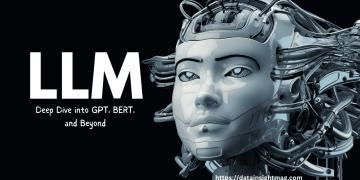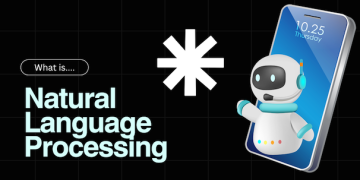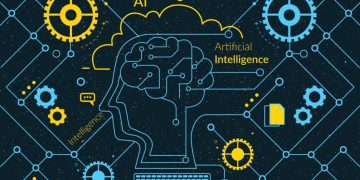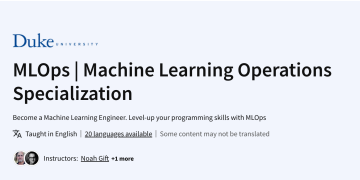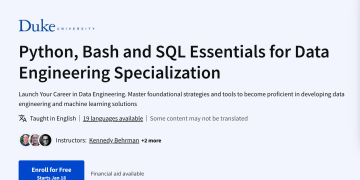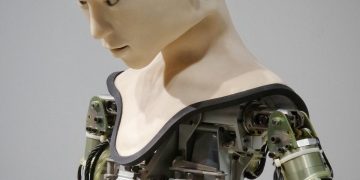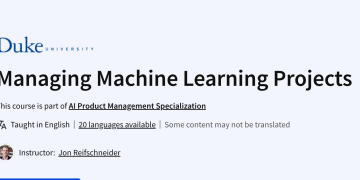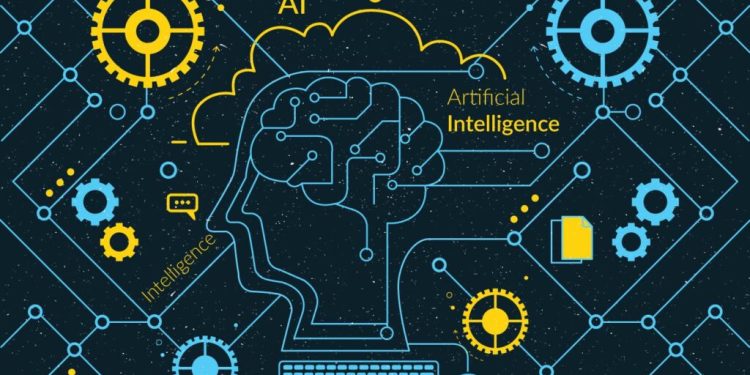The future of Artificial Intelligence will be discussed in this post. The rate of evolution in the modern age is faster than before. Technology is advancing at a breakneck pace these days, from Alexa and SIRI to self-driving cars, Sophia and alpha zero. In science fiction films, we perceive AI as human-like machines, but in fact, it extends much beyond that, with programs like as alpha zero recently defeating all humans at chess and other games.
Artificial Intelligence is a developing area; currently, it is known as weak AI because of it limitations). However, the future of artificial intelligence is about developing powerful AI.
Currently, AI can only beat humans in some activities, but in the future, AI is projected to beat humans in all cognitive tasks. It will undoubtedly have both good and bad repercussions.
What exactly is Artificial Intelligence (AI)?
Artificial intelligence is a branch of study in which we want computers to perform tasks that humans do. Computers are obviously faster when it comes to computation and analytical abilities, but computers cannot make decisions on their own, that is, they lack the capacity to make a decision. Artificial intelligence is the ability of computers to make decisions using their own intellect.
Today, AI has numerous applications in nearly every sector, which appears beneficial and is replacing human jobs, which may be seen negatively.
AI is already being used in our daily lives; we utilize Alexa and Google Home, which are fairly intuitive to our commands and deliver almost correct outcomes. We may have observe the auto-complete sentences when writing email which is typical example of AI at work. Aside from our daily lives, AI technologies are aiding in military operations, warfare plans, and weapon technology.
AI is becoming increasingly essential in healthcare and pharmaceuticals. Latest In a breast cancer detection experiment, Google’s Deep Mind outperformed physicians. Different combinations and results in medicines can be accomplished in considerably less time and with more precision than ever before.
As we can see, AI is becoming more prevalent in all aspects of our life. It’s fascinating to speculate about what our future may look like if AI continues to evolve at such a rapid pace. AI has improved cybersecurity to the point that security systems can now detect a pattern of cyber attacks and strategically develop a counter-attack security solution to deal with them.
The Future of Artificial Intelligence Disciplines
AI is spread to virtually all sectors, and we would examine the future of AI in the following major fields.
1. Artificial Intelligence in Education
On one hand, proper education may increase the power of people and nations; on the other hand, improper education can have disastrous consequences.
The level of education received by youngsters is determined by the country’s growth. Right present, we can observe that there are several AI courses accessible. However, in the future, AI will alter the traditional method of schooling. The world no longer need skilled laborers in industrial industries, which have been mostly substituted by robots and technology.
The education system has the potential to be extremely effective if it is tailored to the individual’s personality and abilities. It would provide opportunities for brighter pupils to shine while also providing imbeciles with a better method to cop out.
2. Artificial Intelligence in Military and Cybersecurity
AI-assisted military technologies have created autonomous weapon systems with high precision rate without require human input at all, this is resulting in to safest approach to improve a nation’s security. In the near future, we may witness military robots that are as intelligent as soldiers/commandos and can do various jobs.
AI-assisted tactics will improve mission efficacy and give the safest approach to carry it out. The concerning aspect of AI-assisted systems is that the algorithm’s performance is not entirely explainable. Deep neural networks learn quicker and continue to train indefinitely; the major issue here would be explainable AI. However, It could possess devastating results when it reaches in the wrong hands or makes wrong decisions on its own.
3 Artificial Intelligence in Health Care
Developing country often have issue providing her citizen with access to health-care facilities. It sometimes is due to a shortage of skilled doctors or nurses, a lack of adequate infrastructure or hospitals, and other factors. AI has the power to diagnose sickness based on symptoms; even if you don’t go to the doctor, AI would scan the data from an individual’s fitness band/medical history to evaluate the pattern and recommend suitable medicine, and even deliver it on one’s fingers simply by cell-phone..
4. Artificial Intelligence in Finance
Growth measurement for every country is intimately connected to its economic and financial situation. Because AI has such a wide range of applications in nearly every sector, it has immense potential to improve both individual and national fiscal prosperity. The AI algorithm is being employed in the management of equity funds.
While determining the optimal method to handle funds, an AI system might consider a large number of variables. It would outperform a human manager in terms of performance. AI-driven tactics in finance will alter the traditional methods of trading and investing.
Conclusion
As we stated in the post, the vast range of opportunities accessible for AI-assisted systems may significantly improve the quality of our lives. On the one hand, it may be a blessing to society if utilized for betterment, but it can also be a curse if it falls into the wrong hands. We addressed the potential of AI in sectors such as finance, health care, education, and military applications, where it may have an impact in both positive and harmful ways.


